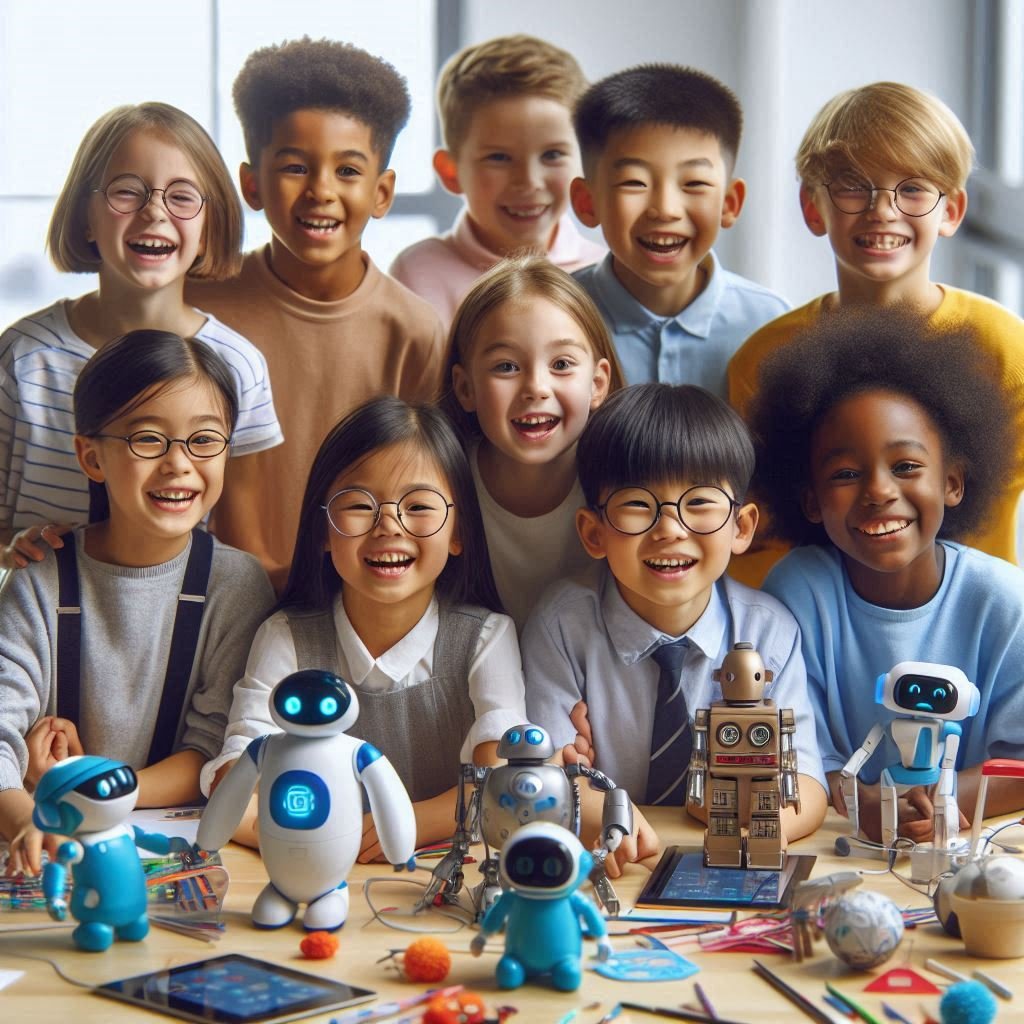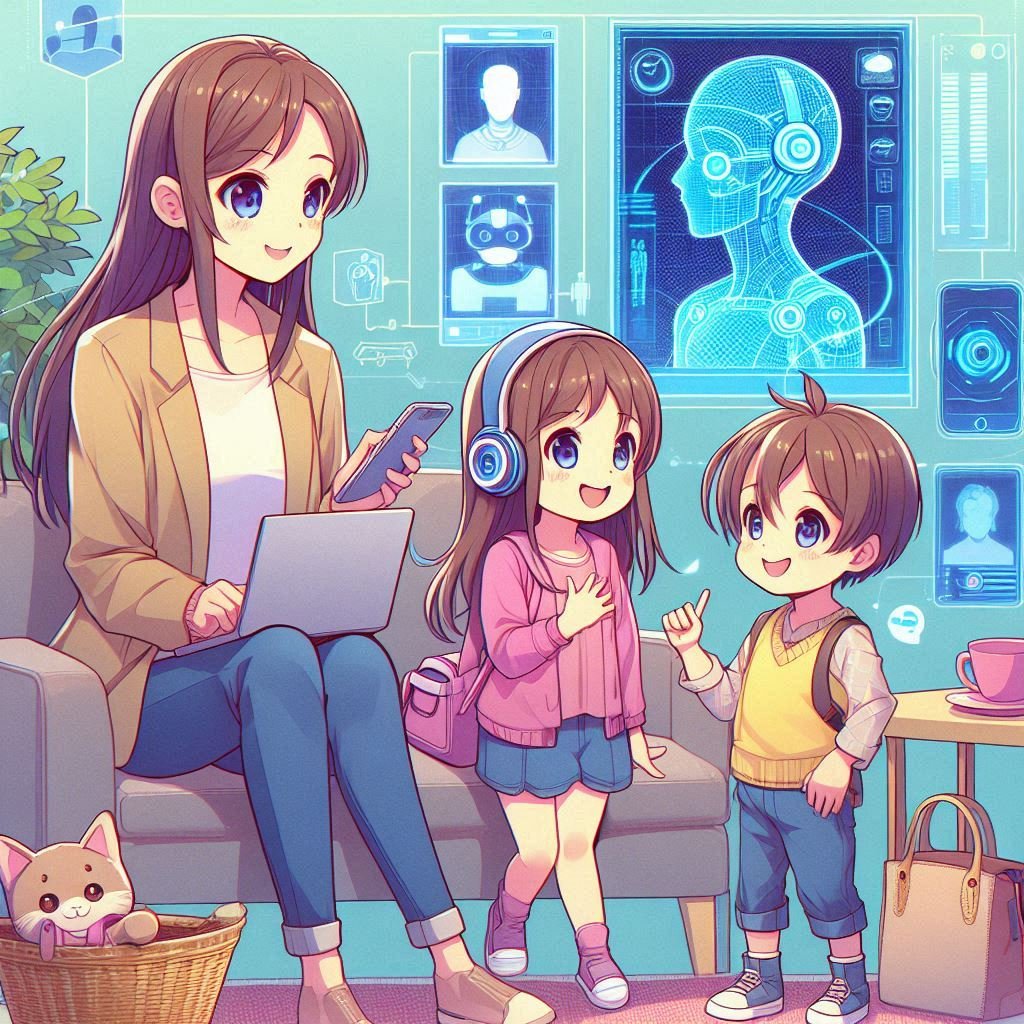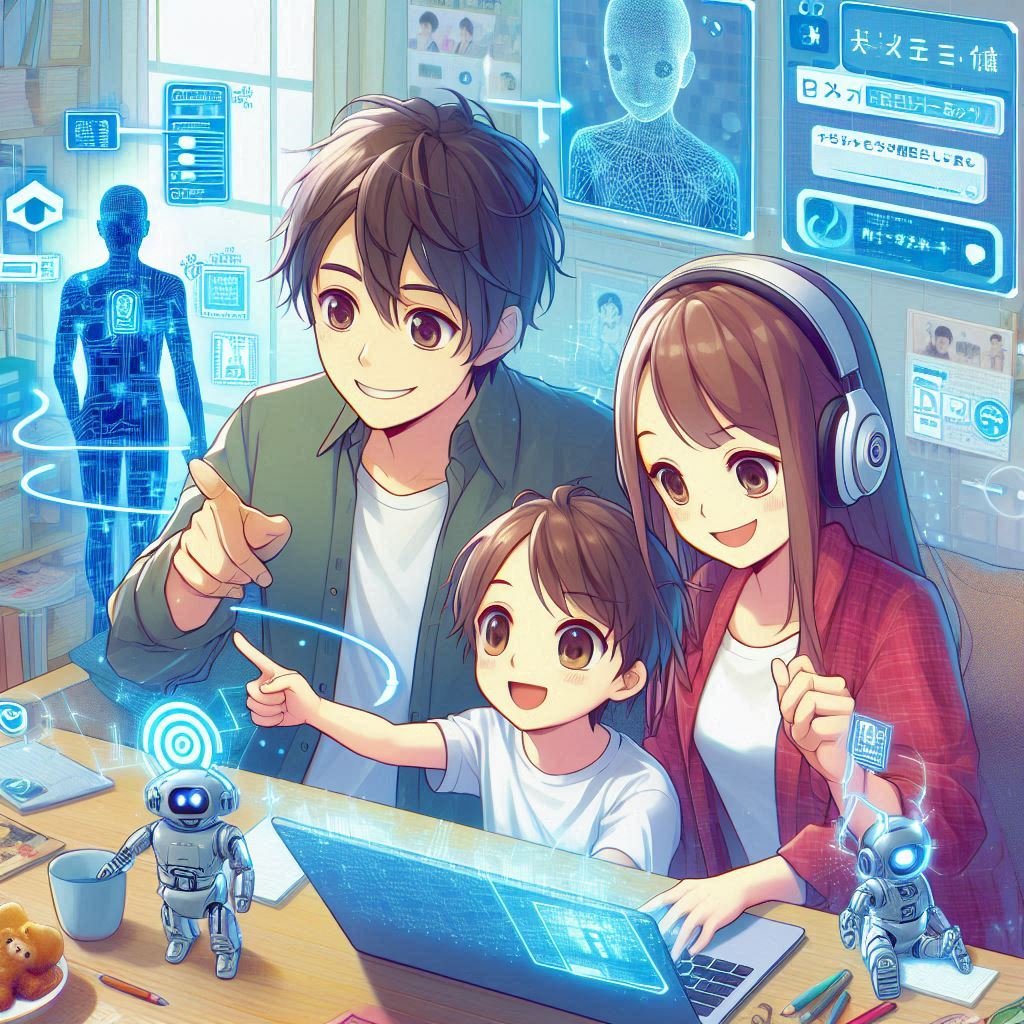Parenting 2.0: How AI is Transforming the Next Generation
In today’s fast-paced digital world, artificial intelligence (AI) is not just a buzzword; it’s becoming an integral part of our daily lives. From smart home devices to virtual assistants, AI is revolutionizing how we live and work. But what about parenting? How is AI transforming the way we raise the next generation? In this comprehensive article, we will explore how AI is reshaping parenting, offering new opportunities and challenges, and providing a glimpse into the future of child-rearing.

The Rise of AI in Parenting
AI has made significant strides in various sectors, and parenting is no exception. With the advent of AI-powered devices and applications, parents now have access to tools that can make their lives easier and more efficient. These technologies are designed to assist parents in monitoring their children’s activities, ensuring their safety, and even aiding in their education and development.

AI-Powered Baby Monitors
One of the most notable advancements in AI for parenting is the development of AI-powered baby monitors. These devices go beyond traditional audio and video monitoring by incorporating features such as real-time breathing and heart rate tracking, sleep pattern analysis, and even temperature and humidity monitoring. AI algorithms can analyze this data to provide parents with actionable insights and alerts, ensuring their baby’s well-being.
Virtual Parenting Assistants
Virtual parenting assistants, such as AI-powered chatbots and smart speakers, are becoming increasingly popular. These assistants can provide parents with instant answers to common parenting questions, offer personalized recommendations for activities and educational content, and even help manage household tasks. For instance, a virtual assistant can remind parents of important appointments, create shopping lists, and suggest meal plans based on their child’s dietary needs.
Enhancing Education and Learning
AI is also playing a crucial role in enhancing education and learning for children. AI-driven educational platforms and apps are designed to adapt to each child’s unique learning style, pace, and preferences, providing a personalized learning experience. These tools can help identify areas where a child may be struggling and offer targeted exercises and resources to improve their skills.
AI Tutors and Learning Apps
AI tutors and learning apps are revolutionizing the way children learn. These platforms use machine learning algorithms to analyze a child’s performance and tailor the content accordingly. For example, AI tutors can provide real-time feedback on math problems, reading comprehension, and even language learning. By offering personalized support, these tools can help children build confidence and excel in their studies.
Gamification of Learning
Gamification, the integration of game elements into educational content, is another area where AI is making a significant impact. AI-powered educational games are designed to engage children and make learning fun. These games use AI algorithms to adapt the difficulty level based on the child’s progress, ensuring they remain challenged and motivated. Gamification not only enhances learning outcomes but also fosters a love for learning from an early age.

Smart Home Security
AI-powered smart home security systems offer advanced features such as facial recognition, motion detection, and real-time alerts. These systems can identify potential threats and notify parents immediately, allowing them to take prompt action. Additionally, AI-driven doorbell cameras and intercoms enable parents to monitor visitors and ensure their child’s safety at home.
AI-Driven Tracking Devices
AI-driven tracking devices, such as GPS-enabled wearables, allow parents to keep track of their child’s whereabouts in real time. These devices can send alerts if a child strays beyond a designated safe zone or if an unusual pattern of movement is detected. By providing peace of mind, these technologies empower parents to allow their children more independence while ensuring their safety
Balancing Screen Time and Digital Well-Being
While AI technologies offer numerous benefits, parents need to strike a balance between screen time and digital well-being. Excessive screen time can have negative effects on a child’s physical and mental health. AI can help parents manage and monitor their child’s screen time effectively.
AI-Powered Parental Control Apps
AI-powered parental control apps enable parents to set limits on screen time, block inappropriate content, and monitor their child’s online activities. These apps provide insights into how children are using their devices and offer recommendations for healthier digital habits. By fostering a balanced approach to technology use, parents can ensure their child’s overall well-being.
Encouraging Offline Activities
AI can also encourage children to engage in offline activities. For instance, AI-driven apps can suggest outdoor games, physical exercises, and creative projects based on a child’s interests. By promoting a healthy mix of online and offline activities, parents can help their children develop a well-rounded lifestyle.

The Future of AI in Parenting
As AI continues to evolve, its impact on parenting will only grow. The future holds exciting possibilities, such as AI-driven robots that can assist with household chores, advanced AI algorithms that can predict and address potential health issues, and even AI-powered virtual reality experiences that can enhance learning and development.
However, with these advancements come ethical considerations and potential challenges. Parents must navigate the complexities of privacy, data security, and the ethical use of AI technologies. Parents need to stay informed and make conscious choices about how they integrate AI into their parenting practices.



